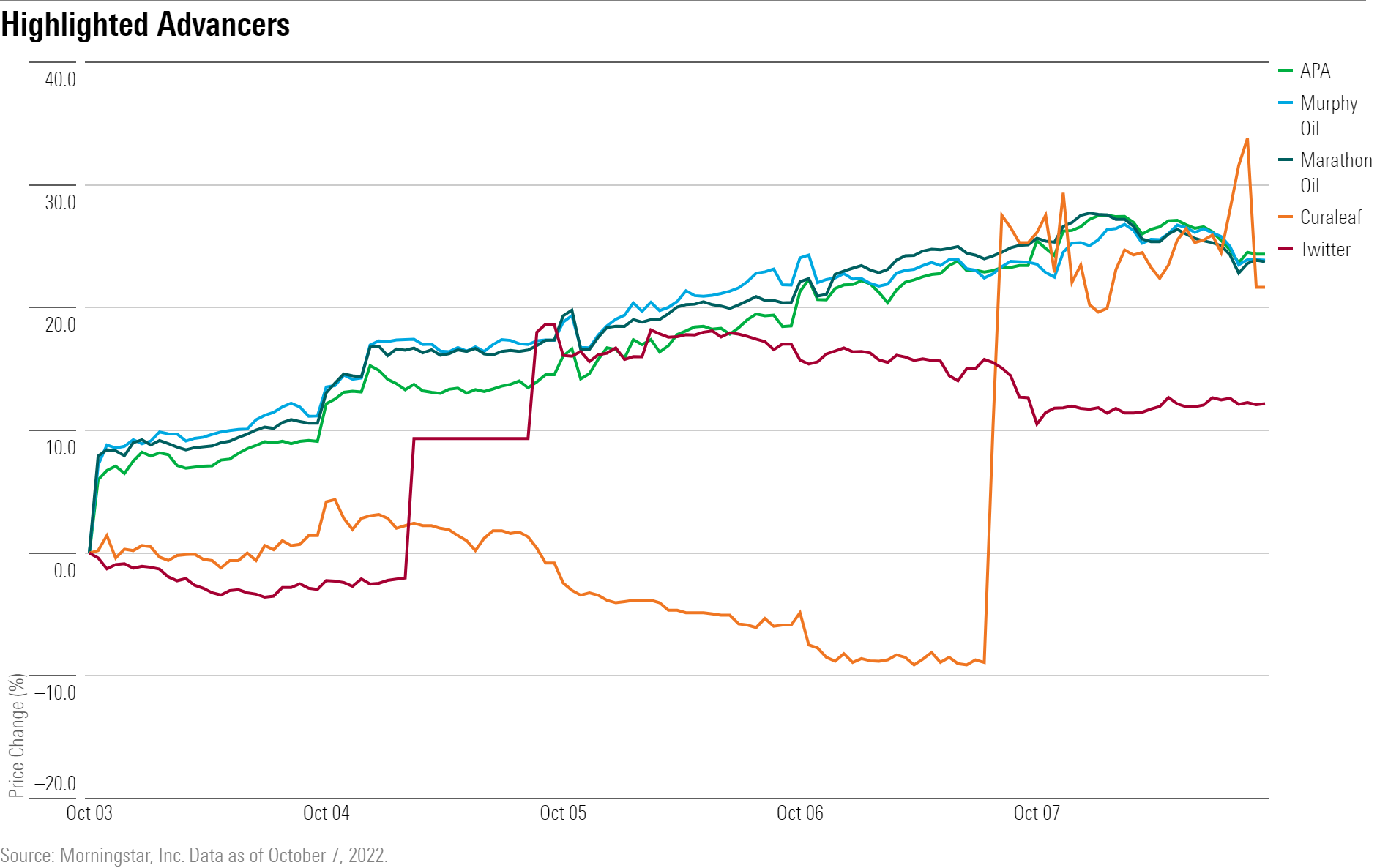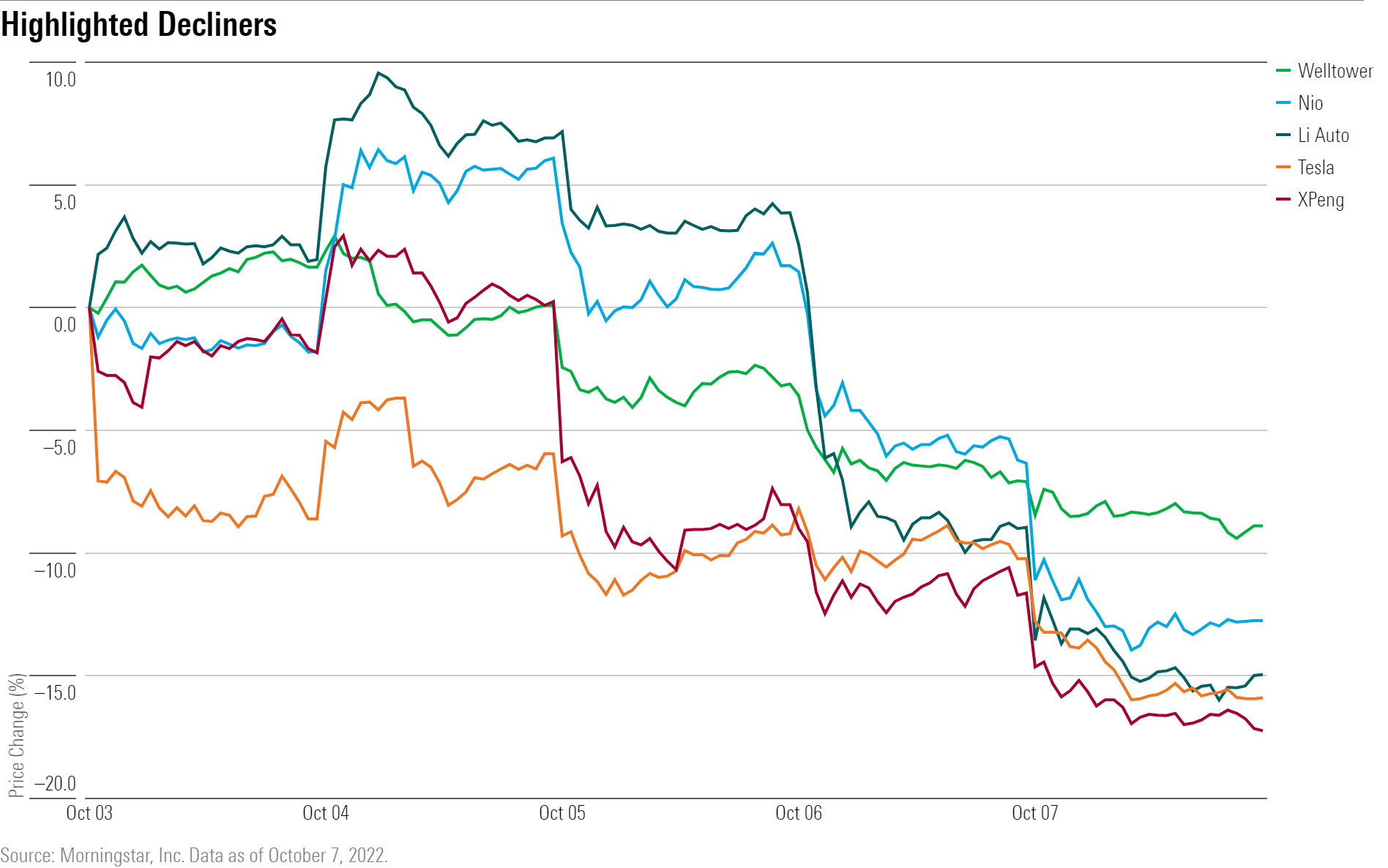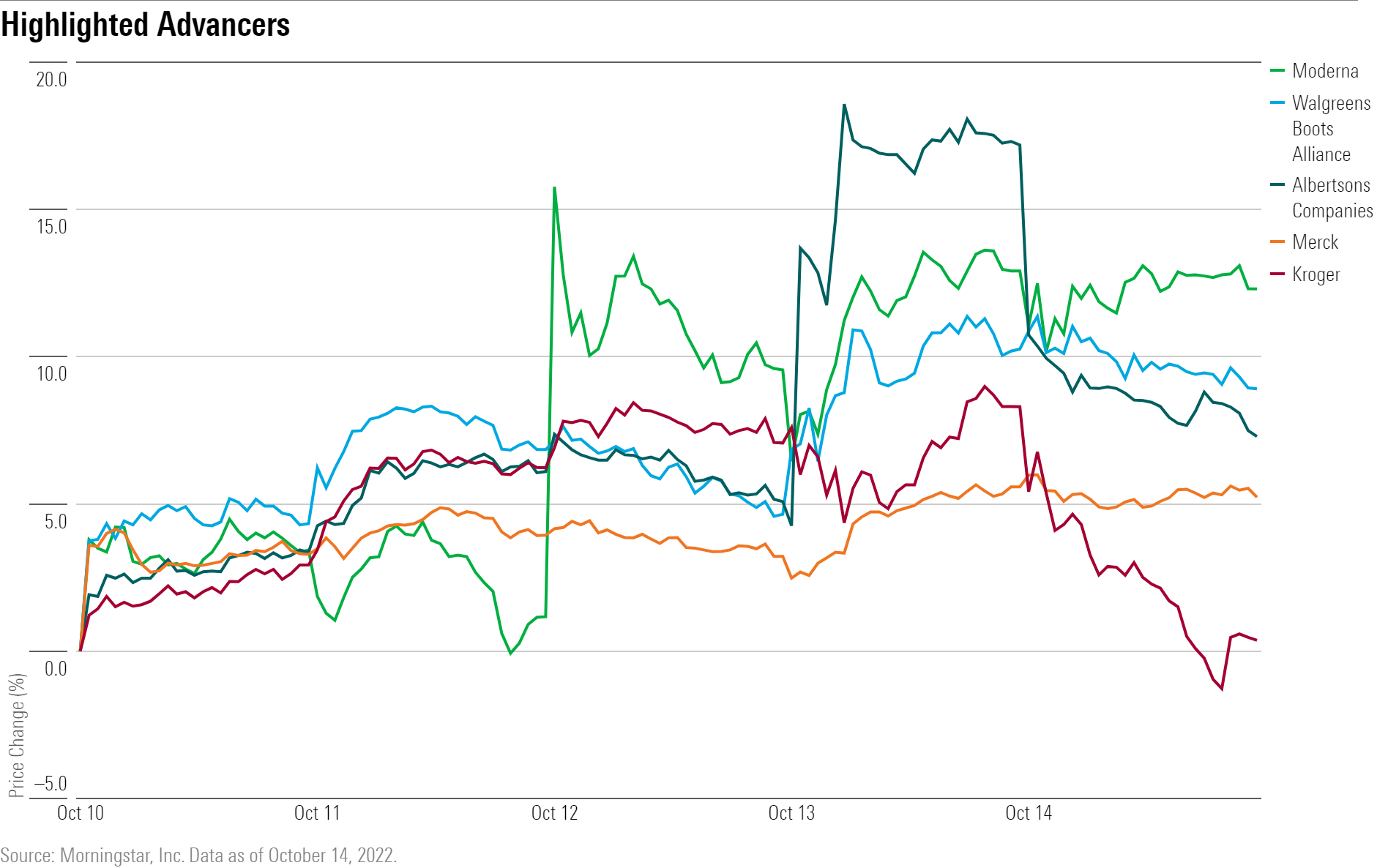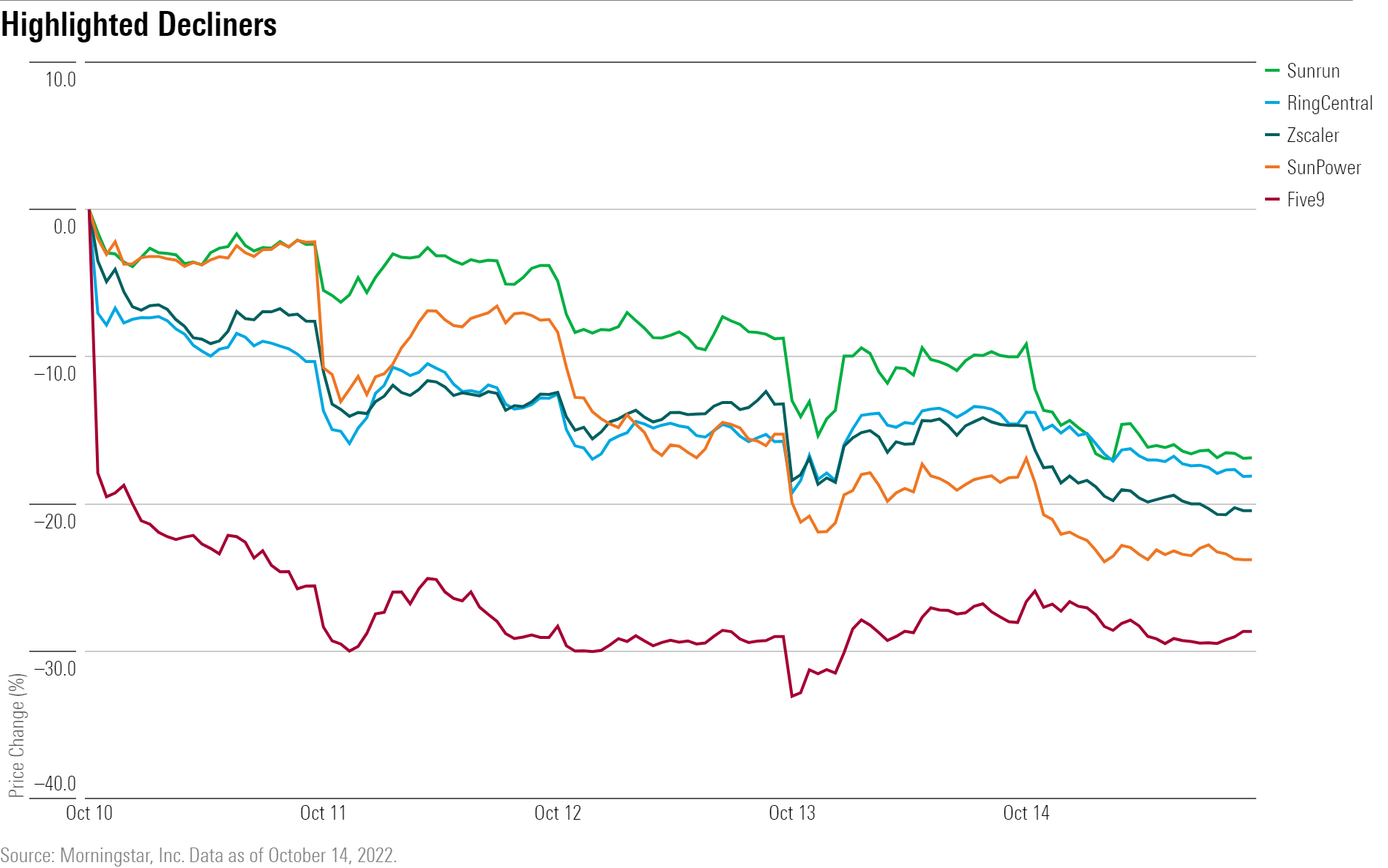With the latest jobs report showing that the economy continued to chug along despite the Federal Reserve’s aggressive interest rate increases, attention now turns to the next reading on inflation to set the market’s tone.
The September employment report came in largely as economists had forecast. But it also cemented expectations that the Fed is on track for yet another rate hike in November, skewering chances that the market would extend its relief rally from earlier in the week.
Despite losing ground Friday, the Morningstar US Market Index ended the week up 1.67%, having bounced back from its new bear-market low set on Sept. 30.
Now, eyes will be on the September Consumer Price Index report due out Thursday, for more signs of what might be expected from the Fed in the coming months.
Throughout much of 2022, inflation readings have played a big role in setting the market’s direction and driven the Fed’s unprecedented interest rate increases. The last CPI report, which showed inflation holding at higher levels than had been expected, was a major surprise. The result was a slide in stocks of 4% on the day it was released, and bond yields surged. Ultimately, the last CPI report played a major role in stocks falling back to new bear-market lows.
The focus for this week’s report will be on core inflation, which excludes food and energy prices, says Preston Caldwell, head of U.S. economics for Morningstar.
“We already know that energy prices fell in September,” Caldwell says, hence the real question is if prices fell in other areas.
“Maybe we’ll start to see some relief on car prices, given some data showing used car prices already headed down.” Used vehicles, which were one of the largest contributors to high inflation figures in the last year, appears to be trending down. As of September, the Manheim Used Vehicle Value Index has fallen about 13.5% from its high in January.
Economists broadly believe core inflation decelerated in September, with average estimates seeing a monthly increase of 0.4% from 0.6% in August, according to FactSet. However, year-over-year inflation is expected to edge up to 6.5% from 6.3% in August.
Despite the market’s tendency to have big reactions to the CPI data, Caldwell warns against placing too much emphasis Thursday’s report.
“One CPI report is only going to tell you so much given the month-to-month volatility of the data,” he says. “I’m tracking three-month growth for the inflation data to smooth out the volatility, so one good report won’t be a cause for celebration for me.”
Third-quarter earnings season is also set to begin. Results from major banks such as JPMorgan (JPM) and Morgan Stanley (MS) are due Friday, Oct. 14, and may influence expectations for the next few weeks.
Events scheduled for the coming week include:
- Wednesday: Producer Price Index report for September to be released, Pepsi (PEP) reports earnings.
- Thursday: Consumer Price Index September report to be released. BlackRock (BLK), Taiwan Semiconductor Manufacturing (TSM), Walgreens (WBA), and Delta Air Lines (DAL) report earnings.
- Friday: Retail Sales report for September to be released. JPMorgan, Morgan Stanley, Citigroup (C), Wells Fargo (WFC), U.S. Bancorp (USB), First Republic Bank (FRC), and PNC Financial Services (PNC) report earnings.
For the trading week ended Oct. 7:
- The Morningstar US Market Index rose 1.67%.
- The best-performing sector was energy, up 13.32%.
- The worst-performing sectors were real estate, down 3.36%, and utilities, which fell 2.47%.
- Yields on the U.S. 10-year Treasury rose to 3.88% from 3.80%.
- West Texas Intermediate crude oil prices rose 16.54% to $92.64 per barrel.
- Of the 843 U.S.-listed companies covered by Morningstar, 587, or 70%, were up, and 256, or 30%, declined.
What Stocks Are Up?
Energy stocks soared as oil and gas prices jumped after the Organization of the Petroleum Exporting Countries said it would cut production by up to 2 million barrels per day, CNBC reported. WTI crude rallied during the week to close at $92.64 per barrel, its highest price since late August. APA (APA), Marathon Oil (MRO), and Murphy Oil (MUR) were among the top gainers in the industry.
Twitter (TWTR) shares rose on reports that Tesla (TSLA) chief executive Elon Musk would uphold his earlier deal to buy the company at $54.20 per share.
Cannabis stocks rallied after President Joe Biden pardoned prior federal offenses of ``simple possession of marijuana,” which raised sentiments for legalization efforts. Tilray (TLRY) and Curaleaf (CURLF) led the group in gains.

What Stocks Are Down?
Tesla’s stock declined after the electric vehicle maker reported preliminary third-quarter deliveries of 343,830. While that is an all-time high, it was still fewer than the market expected, says Morningstar strategist Seth Goldstein.
“While management cited logistics issues that slowed end of quarter deliveries, we think this reflects the challenges ramping up production at its two new factories as well as restarting the Shanghai plant after the COVID-19 lockdowns during the second quarter,” Goldstein says.
Chinese EV makers XPeng (XPEV), Li Auto (LI), and Nio (NIO) also fell for the week.
Concerns about rising interest rates put pressure on real estate stocks which caused investors to rotate out of the sector. Welltower (WELL) and Essex Property Trust (ESS) were among the sector’s worst performers in the past week.



